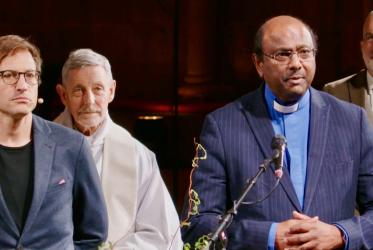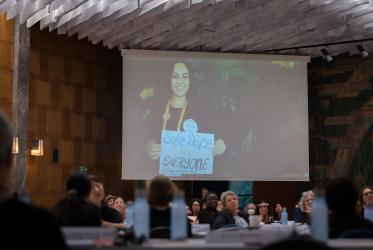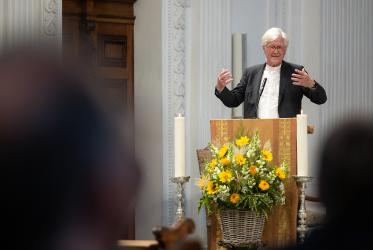The International Day for Disaster (Risk) Reduction began in 1989, after a call by the United Nations General Assembly for a day to promote a global culture of risk-awareness and disaster reduction. Held every 13 October, the day celebrates how people and communities around the world are reducing their exposure to disasters and raising awareness about the importance of lessening their risks.
The role of faith-based organizations (FBOs) in the field of disaster risk reduction (DRR) has become increasingly recognized in recent years by the United Nations, various governments and other stakeholders. The most recent recognition was evident at the World Humanitarian Summit in May 2016, where one of the special sessions was devoted to religious engagement and more than 160 FBOs and religious leaders endorsed the Charter for Faith-Based Humanitarian Action.
Forming the Joint Learning Initiative on Faith and Local Communities (JLIF&LC) in 2012 was a concrete step to highlight the contributions of FBOs in responding to DRR. The JLIF&LC is an international collaboration on evidence for faith groups’ activities and contribution to community health and wellbeing.
On 10 October, the Soka Gakkai International (SGI) along with World Council of Churches (WCC) and the JLIF&LC organised a roundtable at the Ecumenical Centre to commemorate the International Day for Disaster Reduction, inviting representatives from the UN, government missions, FBOs, and academia.
The roundtable was moderated by Mostafa Mohaghegh, senior advisor for cooperation and coordination for the International Federation of Red Cross and Red Crescent Societies. Denis McClean, chief of communication and outreach for the UN Office for Disaster Risk Reduction, offered input. Good practices on DRR by FBOs were presented by Dinesh Suna from the WCC and Christoph Arnold from the ACT Alliance.
Later an exhibition titled “Restoring our Humanity” was hosted by the SGI at the Ecumenical Centre. Dr Isabel Phiri, associate general secretary of WCC, opened the exhibition with a speech emphasising the contribution of FBOs in building a disaster-resilient community. Referring to the communities, she said: “If they are well-prepared, the natural hazards would not go on to become natural disasters. In so doing we would significantly prevent loss of life and properties.”
The exhibition will be in place through 14 October at the Ecumenical Center.
Charter for Faith-Based Humanitarian Action





